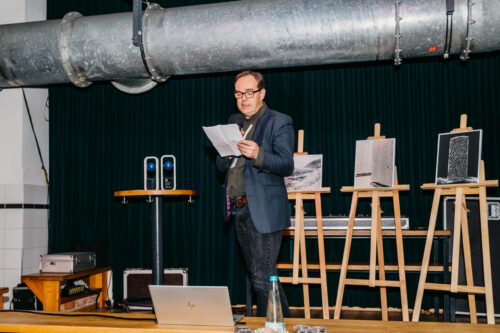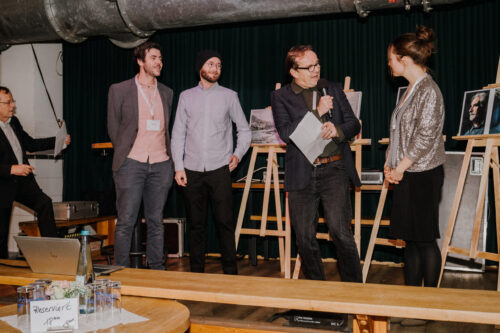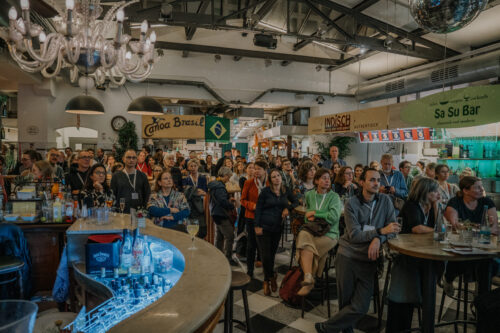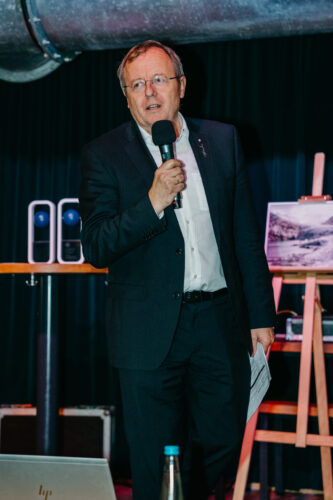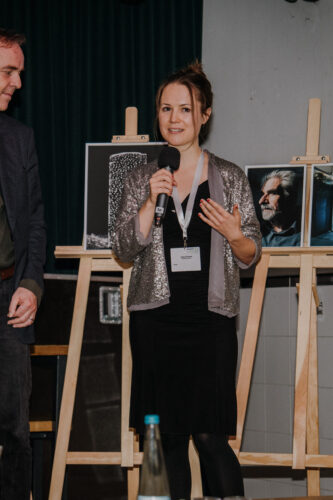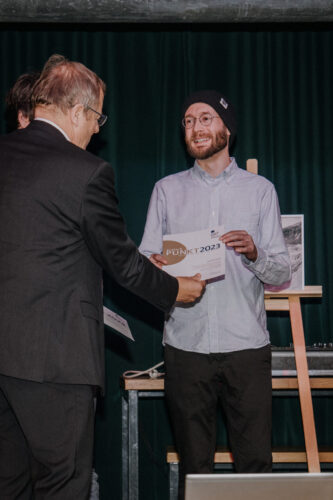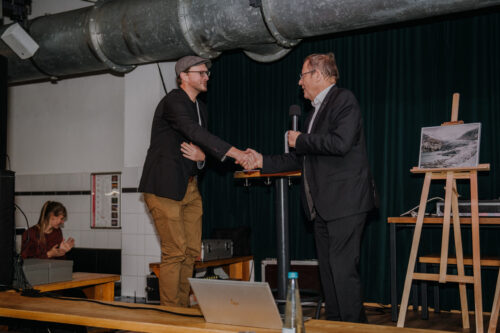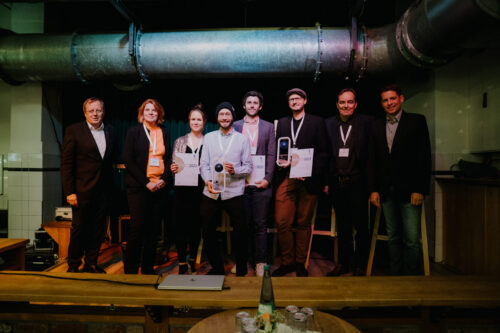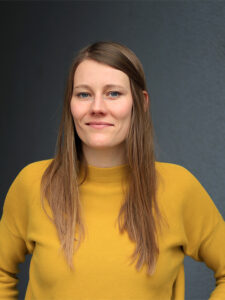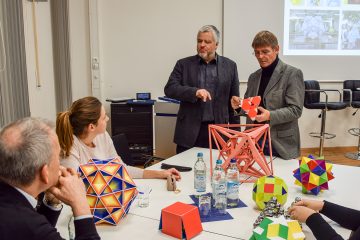“How is that possible?” BR research about safety gaps in biometric devices wins the PUNKT journalism prize

26 October 2023
acatech handed out the PUNKT journalism prize at WISSENSWERTE in Freiburg. The team, headed by Rebecca Ciesielski and Maximilian Zierer, won the prize in the Digital category for their article “Why biometric devices are a danger to Afghans”. Jan Richard Heinicke amazed the jury in the Photo category with his photo series “The Past is the Key to the Future”. The acatech Fotostipendium (photography grant) is being taken home by Paulina Hildesheim for her exposé “Singapur – City of Possibilities?”.
This year, WISSENWERTE travelled to the south, and with it the PUNKT journalism prize (in German). acatech President Jan Wörner handed out the award to the winners in the categories Digital and Foto at an evening ceremony in the Freiburg Markthalle.
Dangerous loss of data in Afghanistan
Volker Stollorz (Science Media Center Germany) was thoroughly roused by the massive security gaps in biometric devices being used by the military in Afghanistan. NATO troops have captured the data of millions of people with the help of biometric scanners. A BR team headed by Rebecca Ciesielski received the PUNKT prize in the category Digital for their research and pioneering digital editing within the report “Why biometric devices are a danger to Afghans“ (in German).
Volker Stollorz: “Now the crazy thing about the story is: the computer scientist Matthias Marx from the Chaos Computer Club was able to track down decommissioned devices, which were purchased on eBay, that feature a huge database of biometric data from 2,600 persons – most of which was gained during missions in Afghanistan and Irak. The data includes thousands of iris scans, fingerprints and photos. It is entirely worthwhile to read or listen to this mystery to the end. The BR team’s research, which even made it into the New York Times, showed in an impressive way how modern biometric technology can threaten people if it ends up in the wrong hands.”
Climate research starts in the past
However, changes have been unprecedented in the recent history of our planet Earth. To understand just how huge these changes are, they must be seen in the context of time. It is this that the photographer Jan Richard Heinicke focuses on in his photo series: “The Past is the Key to the Future”.
acatech President Jan Wörner acknowledges the series and highlights the excellent photographic documentation of palaeoclimatology: it opens up an exceptional and aesthetic perspective on climate change in a way worthy of the PUNKT prize.
Singapore – a city of opportunities?
Climate change is also a topic of photo grant winner Paulina Hildesheim. According to the United Nations, more and more people will be living in cities in future – the question of how to design these cities is therefore more relevant than ever. Singapore is aiming to redefine itself as a sustainable city. The government is supporting the development of flats, strongly limiting the number of car registrations, leveraging a digitalised administration and subsidising public transport. Green architecture and parks shall improve the city’s climate and create habitats for wild animals. However, these efforts are being implemented with the strong arm of the state and by imposing penalties. Paulina Hildesheim is documenting these changes in photos.
Numerous journalists celebrated with the PUNKT winners in the Freiburg Markthalle. They experienced an exciting day at WISSENSWERTE, the key event for scientific journalism, before coming together at the celebratory prize ceremony.


